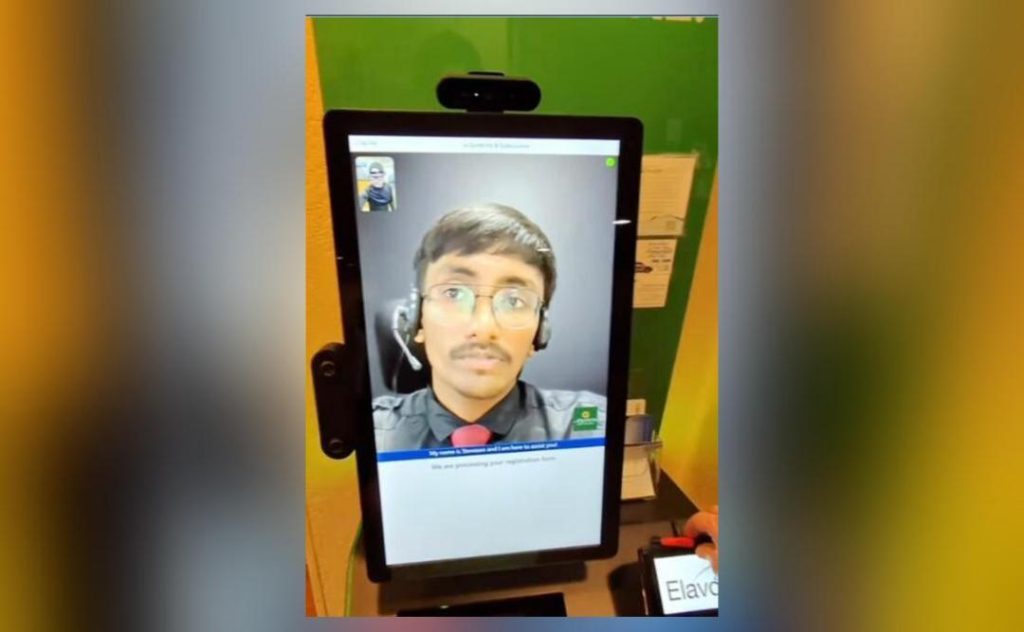
Indian seen manning reception via video call, checking in guest at US hotel; sparks debate
In the era of globalization and technological advancements, the concept of remote work has become increasingly common. With the rise of digital communication tools and platforms, it’s not uncommon to see people working remotely from different parts of the world. However, a recent video has sparked a heated debate about the practice of outsourcing certain jobs to foreign countries.
The video, which surfaced online, shows an Indian man virtually manning a reception desk at a hotel in Miami, Florida. The man was seen dictating check-in instructions to a guest and generating the registration form, which the guest was able to sign virtually using a screen.
The video was shared online, and it quickly sparked a heated debate on social media. While some people praised the technology and the hotel’s innovative approach to customer service, others were outraged by the fact that the job was outsourced to an Indian man.
One user commented, “Outsourcing should just become illegal.” Another user said, “Very cool!” However, the majority of the comments were critical of the hotel’s decision to outsource the job.
The hotel, which was not named in the video, was slammed for its decision to outsource the front desk job to India. Many people felt that the job should be given to an American citizen, rather than an Indian man working remotely.
The debate highlights the ongoing controversy surrounding outsourcing and the impact it has on the job market. While some people argue that outsourcing can bring in new skills and expertise, others argue that it can lead to job losses and a decline in wages.
In recent years, there has been a growing trend towards outsourcing jobs to foreign countries, particularly to India. This has led to concerns about job losses and the impact on the local economy.
The video has also raised questions about the future of customer service and the role of technology in the industry. With the rise of digital communication tools, it’s becoming increasingly possible for companies to outsource customer service jobs to foreign countries.
However, some experts argue that outsourcing customer service jobs can have negative consequences for both the company and the customer. For example, language barriers and cultural differences can lead to misunderstandings and errors.
In addition, outsourcing customer service jobs can also lead to a lack of personal touch and human connection. Customers may feel that they are not getting the same level of service and attention that they would if they were dealing with a local representative.
The hotel’s decision to outsource the front desk job to India has sparked a heated debate about the future of customer service and the role of technology in the industry. While some people see the video as a sign of innovation and progress, others are critical of the hotel’s decision.
Ultimately, the debate highlights the importance of considering the impact of outsourcing on the job market and the local economy. Companies must carefully weigh the benefits of outsourcing against the potential drawbacks and consider the needs of their customers and employees.
In the end, the video has sparked a much-needed conversation about the future of customer service and the role of technology in the industry. As the debate continues to unfold, one thing is clear: the days of traditional customer service are numbered, and companies must adapt to the changing landscape or risk being left behind.






